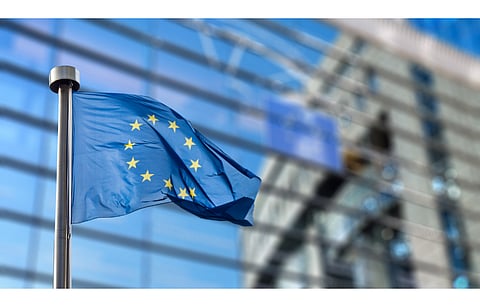

As Europe's energy crisis deepens with no respite in the near future, the European Commission (EC) has proposed temporary emergency regulation to speed up permitting for renewable energy projects for 1 year, presuming these to be 'overriding public interest' with a maximum of 1 month permitting process for solar and co-located storage.
Specific projects and technologies as solar and heat pumps with highest potential for quick deployment, the least impact on the environment and contribution to the region's energy security in the wake of weaponization of energy supplies by Russia, have been considered under the regulation.
Since solar can be rolled out faster with direct benefits for citizens and businesses, not to miss it being a low-cost renewable electricity source, the commission believes granting significantly faster permit procedures will accelerate the pace of installation of solar on artificial structures as buildings.
The maximum 1-month deadline is for solar energy equipment and its co-located storage and grid connections when not installed on natural ground in the European Union (EU). It will only apply to solar on building rooftops, parking lots and all sorts of sheds, along transport infrastructure and other artificial structures.
For solar, the measures will also be implemented for projects below 50 kW capacity that are not likely to have any major adverse impact on the environment.
"The proposed Council Regulation also exempts these installations from the need to carry out certain environmental assessments. Introducing the concept of 'positive administrative silence' in the relevant permit-granting procedures aims to promote and accelerate the deployment of small-scale installations," stated the commission.
Another significant feature of the temporary regulation is streamlining permit-granting process for repowering renewable energy projects by including all relevant environmental assessments in the new maximum deadline of 6 months. It should also be limited to assessing the potential impacts resulting from the change or extension.
For heat pumps, the maximum deadline for permit granting is 3 months. There is also a recommendation to simplify procedures for grid connections.
Even as the proposal is to have these temporary measures in effect for a year, these can be extended if required.
If approved, these measures can easily be implemented by member states without requiring lengthy changes to their legal systems and national procedures.
The EC has published a Q&A to explain the rationale and other details of the proposed measures.
"The EU is speeding up its renewable energy deployment, with the record-breaking 50 GW of new capacity expected this year. But to effectively address high energy prices, ensure energy independence and achieve climate goals, we need to accelerate even more," said Commissioner Kadri Simson. "Permitting is often one of the main bottlenecks preventing swift progress. Today's proposals can make a difference already in the coming months and directly benefit citizens and businesses."
These fast-tracking measures are targeted at speeding up the rollout of the EU's REPowerEU plan under which the EU aims to have 45% share of renewable energies in its total energy mix by 2030, with solar contributing 600 GW AC/750 GW DC (see EU One Step Closer To 45% Renewables Target For 2030).
Recently, Switzerland also said it will give precedence to renewable energy over other interests to ensure energy security for the country (see Switzerland Bats For 45 TWh RE Production In 2050).
